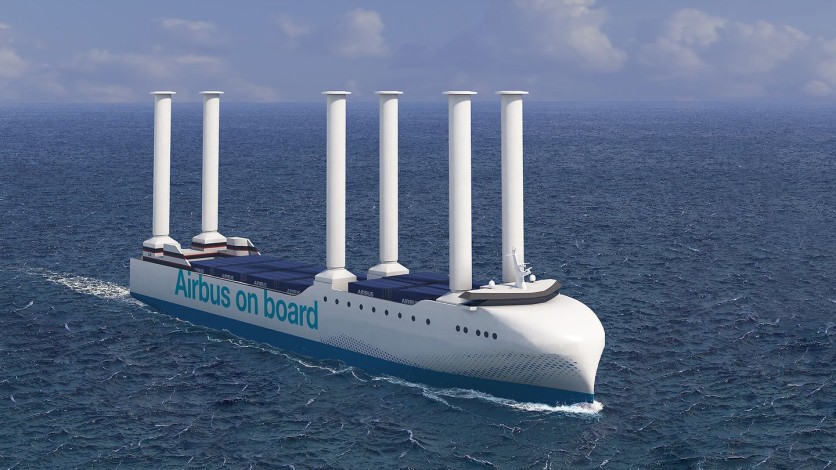Airbus has announced its plans to replace its entire fleet of chartered vessels responsible for ferrying aircraft subassemblies between production sites in Europe and the United States with greener, more efficient ships.
The company has partnered with shipowner Louis Dreyfus Armateurs to construct and operate three state-of-the-art, low-emission roll-on/roll-off vessels. These modern ships, equipped with wind-assisted propulsion, will enter into service in 2026.
Airbus' Environmental Goals
This move is a significant stride towards Airbus' environmental goals. By 2030, the upgraded fleet is projected to slash annual transatlantic CO2 emissions from 68,000 to 33,000 tonnes.
It aligns with Airbus' commitment to curtail overall industrial emissions by up to 63% by the end of the decade, using 2015 as the benchmark year. These targets are in accordance with the 1.5°C pathway outlined in the Paris Agreement.

Nicolas Chrétien, Head of Sustainability & Environment at Airbus, underscored the importance of this fleet renewal in mitigating their environmental impact.
He emphasized the enhanced fuel efficiency of the proposed vessels, incorporating advanced technologies like wind-assisted propulsion. Airbus aims to lead the charge in decarbonizing not only aviation but also its broader industrial operations.
"The renewal of our marine fleet is a major step forward in reducing our environmental impact... The latest generation of vessels proposed by Louis Dreyfus Armateurs are more fuel efficient than their predecessors, using cutting-edge technologies like wind-assisted propulsion," said Chrétien.
"This demonstrates our determination to lead the way in decarbonising our sector by innovating not just in aviation, but across all our industrial operations," he added.
Edouard Louis-Dreyfus, President of Louis Dreyfus Armateurs, expressed the company's satisfaction at being selected by Airbus for this project. He highlighted their shared ambition to contribute to the decarbonization of the shipping industry.
Louis Dreyfus Armateurs takes pride in supporting their customers in their transition towards sustainable practices by providing solutions that could drive positive change.
Read Also : Voyager Space, Airbus Join Forces to Develop Starlab That Could Replace NASA's International Space Station
Gradual Phase Out of Airbus' Existing Chartered Vessels
Airbus will gradually phase out the existing chartered vessels responsible for shuttling aircraft subassemblies across the Atlantic, linking Saint-Nazaire, France, to the single-aisle aircraft final assembly line in Mobile, Alabama.
The upcoming vessels will harness a combination of six Flettner rotors and large rotating cylinders that leverage wind energy to generate forward propulsion, along with two dual-fuel engines running on maritime diesel oil and e-methanol.
Furthermore, specialized routing software will optimize the vessels' Atlantic journey, leveraging wind power while avoiding resistance from adverse ocean conditions. This fleet overhaul will also support Airbus' goal of ramping up A320 family production to 75 aircraft per month by 2026.
The upcoming transatlantic vessels will be capable of carrying about seventy 40-foot containers and six sets of single-aisle aircraft components, encompassing wings, fuselage, engine pylons, as well as horizontal and vertical tail planes. It represents a noteworthy upturn from the three to four sets typically transported by existing cargo ships.
Related Article : Future Combat Air System: Europe's Demo on Manned-Unmanned Defense with Airbus a Success

ⓒ 2025 TECHTIMES.com All rights reserved. Do not reproduce without permission.




